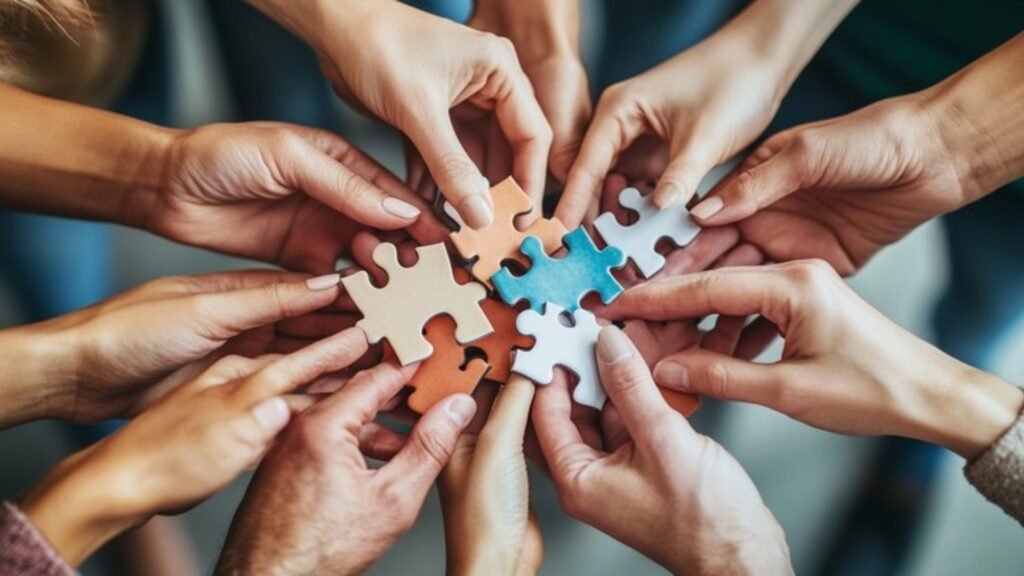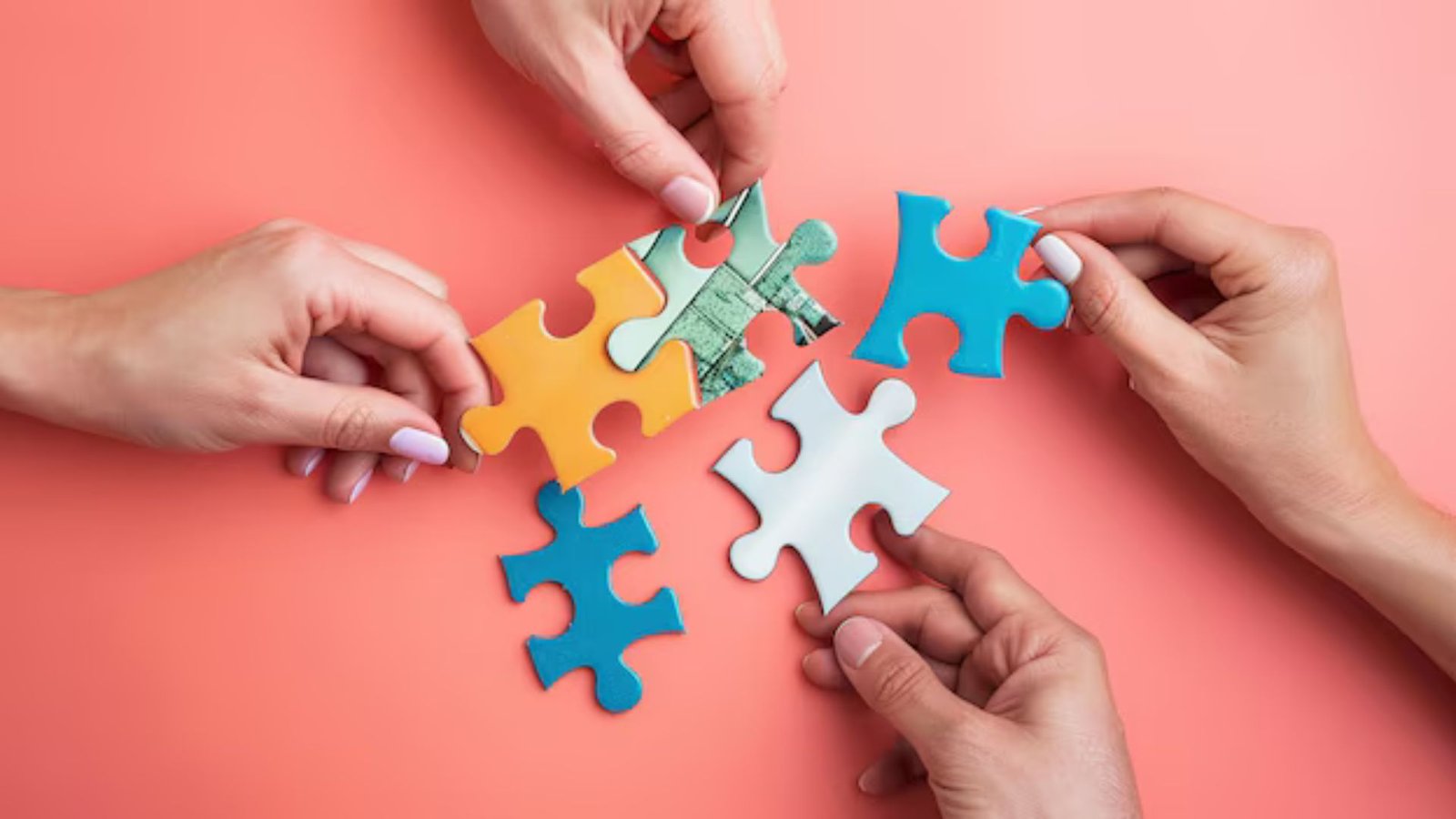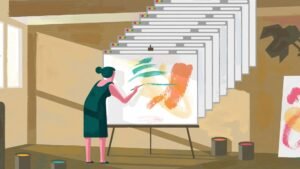Puzzles are often seen as solitary activities, where individuals sit alone, quietly working to solve complex challenges. However, in reality, puzzles have a rich social side that brings people together in a way few other activities can. From family gatherings and friendly competitions to online communities and team-building exercises, puzzles foster connection, collaboration, and communication. Whether it’s working together to complete a jigsaw puzzle or participating in a competitive crossword challenge, puzzles have a unique ability to strengthen relationships and build camaraderie. In this article, we will explore how puzzles contribute to social bonding, enhance relationships, and foster a sense of community.

Puzzles as a Family Bonding Activity
One of the most enduring social benefits of puzzles is their ability to bring families together. In an age of digital distractions, spending quality time with loved ones can sometimes be difficult. Puzzles offer a simple yet effective way to reconnect and enjoy each other’s company.
a. Shared Goal and Cooperation
When working on a jigsaw puzzle as a family, everyone must collaborate toward a common goal: completing the puzzle. This shared effort fosters a sense of unity and teamwork. Family members can work together to find pieces, discuss strategies, and celebrate small victories along the way. This collective process promotes communication, cooperation, and patience—key ingredients for strong family bonds.
b. Encouraging Interaction
Puzzles naturally encourage conversation and interaction. As you work on finding solutions, you’ll often find yourself discussing strategies, pieces, or even reminiscing about shared memories. This open communication helps strengthen relationships by providing an opportunity for bonding in a relaxed, pressure-free environment.
c. Tradition of Puzzle Time
Many families create traditions around puzzle-solving, such as setting aside time during holidays, rainy days, or weekends to work together on a puzzle. These moments not only provide fun and relaxation but also become cherished memories that families carry for years. It’s these small, shared moments that reinforce family connections.
Friendship Building Through Puzzle-Solving
Beyond family, puzzles are a fantastic way for friends to bond. Whether you’re solving a challenging puzzle together or participating in a friendly competition, puzzles provide a fun and engaging way to deepen friendships.
a. Collaborative Problem-Solving
Puzzles often require collaboration and shared problem-solving, which strengthens friendships. As friends work together to piece together a jigsaw or crack a crossword, they are engaged in a joint effort that requires trust, patience, and mutual respect. This collaboration helps deepen the emotional connection between individuals.
b. Socializing with a Purpose
While many social activities revolve around conversation or shared experiences, puzzles offer a structured form of socializing. This makes them ideal for bringing people together who may not otherwise find common ground. As friends work through the puzzle, they engage in both task-focused discussions and casual conversation, creating a relaxed atmosphere for genuine connection.
c. Fun Competitions and Challenges
Friendly competition is another great way puzzles foster social interaction. Puzzle races, for example, can lead to laughter, lighthearted rivalry, and plenty of shared moments. Whether it’s racing to complete a jigsaw or competing in a trivia challenge, the thrill of competition adds an extra layer of excitement to the social experience.
Conclusion
Puzzles are far more than just individual challenges—they are a powerful tool for bringing people together. Whether through family gatherings, friendly competitions, or virtual communities, puzzles create opportunities for meaningful social interaction, cooperation, and connection. From fostering communication skills to promoting teamwork and reducing isolation, puzzles provide a unique way to strengthen relationships and build a sense of community.
So, the next time you sit down to solve a puzzle, remember: you’re not just stimulating your brain, you’re also engaging in a social activity that has the power to deepen bonds and create lasting connections.



